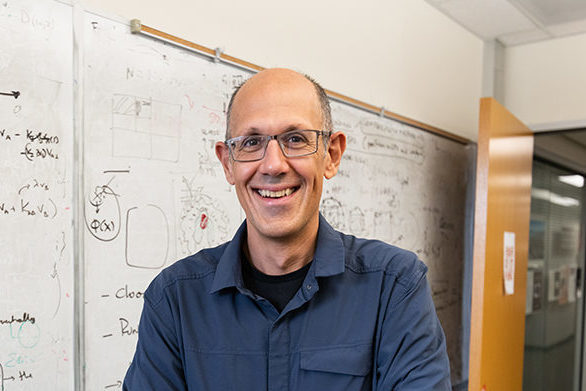Speaker: George Biros, Ph.D., W. A. “Tex” Moncrief Chair in Simulation-Based Engineering Sciences at the Oden Institute, and Professor of Mechanical Engineering, University of Texas at Austin.
Host: Ulisses Braga-Neto
Abstract: Stochastic phase field partial differential equations (PDEs) model many phenomena in science in engineering. In this talk I focus on crystal formation and growth (or grain growth) during solidification in metal additive manufacturing. Predicting grain evolution during alloy solidification is of great importance in additive manufacturing (AM) as it controls the mechanical properties of the manufactured part. Numerical simulations require fine spatial and temporal discretization that can be computationally expensive.In this talk, I will discuss GrainGNN, an efficient and accurate reduced-order model for epitaxial grain growth in additive manufacturing conditions. GrainGNN is a sequence-to-sequence long-short-term-memory (LSTM) deep graph neural network that evolves the dynamics of manually crafted features. We present results in which GrainNN can be orders of magnitude faster than phase field simulations, while delivering 5%–15% pointwise error. This speedup includes the cost of the phase field simulations for generating training data. GrainNN enables predictive simulations and uncertainty quantification of grain microstructure for situations not previously possible. This is joint work with Yigong Qin (UT Austin), Steve DeWitt (ORNL), and Balasubramanian Radhakrishnan (ORNL).
Biography: George Biros is the W. A. “Tex” Moncrief Chair in Simulation-Based Engineering Sciences in the Oden Institute for Computational Engineering and Sciences and has Full Professor appointments with the departments of Mechanical Engineering and Computer Science (by courtesy) at The University of Texas at Austin. From 2008 to 2011, he was an Associate Professor in the School of Computational Science and Engineering at Georgia Tech and The Wallace H. Coulter Department of Biomedical Engineering at Georgia Tech and Emory University. From 2003 to 2008, he was an Assistant professor in Mechanical Engineering and Applied Mechanics at the University of Pennsylvania. He received his BS in Mechanical Engineering from Aristotle University in Greece (1995), his MS in Biomedical Engineering from Carnegie Mellon (1996), and his PhD in Computational Science and Engineering also from Carnegie Mellon (2000). He was a postdoctoral associate at the Courant Institute of Mathematical Sciences from 2000 to 2003. With collaborators, he received the ACM Gordon Bell Prize in 2003 and in 2010. He is a 2023 SIAM Fellow.
